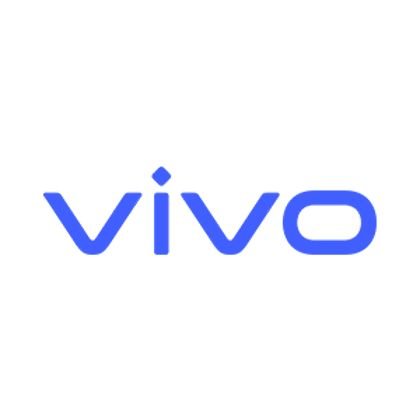
Cloud computing has become an essential part of modern technology infrastructure, enabling businesses to scale, innovate, and operate with greater efficiency. By leveraging cloud platforms, organizations can access computing resources, storage, and applications over the internet, without the need for extensive on-premises hardware. In 2024, several cloud computing platforms are leading the industry, each offering a range of services tailored to different needs. This article explores the top 10 cloud computing platforms that are shaping the future of IT.
1. Amazon Web Services (AWS)
Amazon Web Services (AWS) remains the dominant player in the cloud computing market, offering a comprehensive suite of cloud services that cater to businesses of all sizes. AWS provides a wide range of services, including computing power, storage, databases, machine learning, analytics, and more.
Key Features:
- Scalability: AWS allows businesses to scale their infrastructure up or down based on demand, ensuring they only pay for what they use.
- Global Reach: With data centers in regions around the world, AWS offers low-latency access and compliance with local regulations.
- Rich Ecosystem: AWS boasts a vast ecosystem of tools, third-party integrations, and partnerships, making it highly versatile for different industries.
2. Microsoft Azure
Microsoft Azure is a close competitor to AWS, offering a robust cloud platform that integrates seamlessly with Microsoft’s suite of enterprise tools, including Office 365 and Dynamics 365. Azure is known for its hybrid cloud capabilities, allowing businesses to manage both on-premises and cloud-based resources.
Key Features:
- Hybrid Cloud Solutions: Azure supports hybrid cloud environments, making it easier for businesses to transition from on-premises infrastructure to the cloud.
- AI and Machine Learning: Azure provides powerful AI and machine learning tools, including Azure Machine Learning and Cognitive Services, enabling businesses to build intelligent applications.
- Enterprise Integration: Azure integrates smoothly with Microsoft’s enterprise products, providing a cohesive environment for businesses already using Microsoft tools.
3. Google Cloud Platform (GCP)
Google Cloud Platform (GCP) is known for its advanced data analytics, machine learning, and artificial intelligence capabilities. GCP leverages Google’s extensive expertise in big data to offer services that are particularly suited for data-intensive applications.
Key Features:
- Data and Analytics: GCP excels in data management and analytics, with tools like BigQuery, Dataflow, and Dataproc that allow for real-time data processing and analysis.
- Machine Learning: Google’s AI and machine learning services, such as TensorFlow and Vertex AI, are among the most advanced in the industry.
- Sustainability: GCP emphasizes sustainability, with a commitment to operating the world’s cleanest cloud, powered by renewable energy.
4. IBM Cloud
IBM Cloud is a powerful cloud computing platform that focuses on hybrid cloud environments and enterprise-grade solutions. IBM Cloud is particularly strong in industries like finance, healthcare, and government, where security and compliance are critical.
Key Features:
- Hybrid and Multi-Cloud Support: IBM Cloud offers robust support for hybrid and multi-cloud environments, enabling businesses to integrate and manage multiple cloud services.
- AI and Blockchain: IBM Cloud provides specialized services in AI (through IBM Watson) and blockchain, catering to businesses looking to innovate in these areas.
- Security and Compliance: IBM Cloud places a strong emphasis on security, offering tools and services that comply with industry-specific regulations.
5. Oracle Cloud
Oracle Cloud is known for its enterprise-grade cloud solutions, particularly in database management and enterprise applications. Oracle’s cloud offerings are designed to support mission-critical applications and large-scale enterprise workloads.
Key Features:
- Database Services: Oracle Cloud is renowned for its database management services, including Oracle Autonomous Database, which offers self-driving, self-securing, and self-repairing capabilities.
- Enterprise Applications: Oracle Cloud supports a wide range of enterprise applications, including ERP, SCM, and HCM, providing a comprehensive suite for business operations.
- High Performance: Oracle Cloud Infrastructure (OCI) is designed for high performance, offering powerful computing resources and low-latency networking.
6. Alibaba Cloud
Alibaba Cloud, also known as Aliyun, is the leading cloud provider in China and is rapidly expanding its global footprint. It offers a wide range of cloud services, including computing, storage, networking, and AI, tailored to the needs of businesses in various industries.
Key Features:
- Global Reach: Alibaba Cloud has a strong presence in Asia, with data centers in multiple regions, making it a preferred choice for businesses operating in or with Asia.
- E-commerce Integration: Given its parent company Alibaba’s dominance in e-commerce, Alibaba Cloud offers specialized solutions for online retail, including data analytics and AI tools.
- Scalability and Flexibility: Alibaba Cloud provides scalable solutions that cater to both small businesses and large enterprises, offering flexibility in service deployment.
7. Salesforce Cloud
Salesforce Cloud is a leader in customer relationship management (CRM) and offers a robust cloud platform for managing customer interactions, sales, and marketing. Salesforce’s cloud services are widely used in industries such as retail, finance, and healthcare.
Key Features:
- CRM Excellence: Salesforce Cloud is the go-to platform for CRM, providing tools for sales automation, customer service, marketing automation, and more.
- AI Integration: Salesforce Einstein is an AI-powered feature that enhances the platform with predictive analytics, personalized recommendations, and automated workflows.
- AppExchange Ecosystem: Salesforce offers a vast marketplace, AppExchange, where users can find thousands of third-party apps and integrations to extend the functionality of the platform.
8. SAP Cloud Platform
SAP Cloud Platform is designed for businesses that rely on SAP’s enterprise software solutions. It offers a comprehensive set of cloud services for building, managing, and running enterprise applications, with a focus on ERP, supply chain management, and human capital management.
Key Features:
- Enterprise Integration: SAP Cloud Platform integrates seamlessly with SAP’s on-premises solutions, providing a unified environment for managing enterprise applications.
- Industry-Specific Solutions: SAP offers tailored solutions for industries such as manufacturing, retail, and healthcare, addressing specific business needs.
- Data Management: SAP’s cloud platform includes powerful data management and analytics tools, enabling businesses to gain insights from their data.
9. VMware Cloud
VMware Cloud is known for its virtualization technology and is a preferred choice for businesses looking to transition to a hybrid cloud environment. VMware’s cloud services are designed to work seamlessly with existing VMware infrastructure, making it easier for businesses to move to the cloud.
Key Features:
- Hybrid Cloud Support: VMware Cloud enables businesses to run, manage, and secure applications across both on-premises and cloud environments.
- Virtualization Expertise: VMware’s cloud platform leverages its leading virtualization technology, providing businesses with efficient and scalable cloud solutions.
- Cloud Management: VMware offers comprehensive cloud management tools that help businesses monitor and optimize their cloud environments.
10. DigitalOcean
DigitalOcean is a cloud computing platform that focuses on simplicity and ease of use, making it popular among developers, startups, and small to medium-sized businesses. It offers a range of cloud services, including virtual private servers, managed databases, and Kubernetes.
Key Features:
- Developer-Friendly: DigitalOcean is designed with developers in mind, offering a straightforward interface and tools that make it easy to deploy and manage applications.
- Affordable Pricing: DigitalOcean provides cost-effective cloud services, making it accessible for startups and small businesses with limited budgets.
- Scalable Solutions: Despite its simplicity, DigitalOcean offers scalable solutions that can grow with your business, from small projects to large-scale deployments.
Conclusion
In 2024, the cloud computing landscape is more competitive and diverse than ever, with a range of platforms catering to different needs and industries. Whether you’re a large enterprise looking for robust hybrid cloud solutions or a small startup in need of a simple and affordable platform, there’s a cloud computing platform that can meet your needs.
The top 10 cloud computing platforms highlighted in this article each bring unique strengths to the table, from Amazon Web Services’ unmatched scalability to DigitalOcean’s developer-friendly approach. As businesses continue to migrate to the cloud, these platforms will play a crucial role in driving innovation, efficiency, and growth in the years to come.
ALSO READ: How Biometrics Will Change Personal Security









